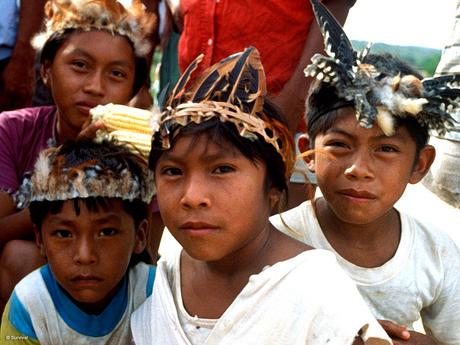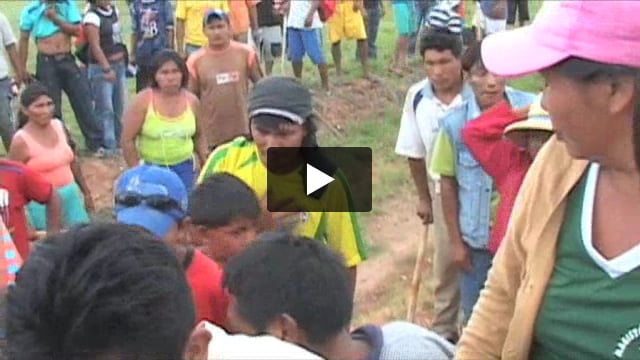Future of tribes lies in the balance
October 25, 2004
This page was last updated in 2004 and may contain language which is now outdated.
‘I think you can help us speak to the President so that the demarcation of our land is ratified and these invaders are removed.'
Orlando Makuxi
The Brazilian government is delaying ratifying the boundaries of an Indian area, Raposa-Serra do Sol, in north Brazil with disastrous consequences for the 12,000 Indians who have lived there since time immemorial. Farmers and miners have invaded the area illegally and use it for cattle ranching, rice cultivation and mining gold, and the army has built a barracks right beside an Indian community.
There is great pressure on the government to cut the size of the Indian area by one-quarter. Local politicians and businesses have tried to keep the territory open for their own profits, and even succeeded in getting the courts to grant an injunction in their favour. This was overturned by the Supreme Court in November 2002, and although the Minister of Justice ordered the area to be made Indian land as long ago as December 1998, the president has still not done the required final step which is to ratify the ’demarcation'.
The president is now being asked to make a final decision about this and it is crucial that he is made aware of the tragic consequences of any failure to act in the Indians' favour.
Raposa-Serra do Sol, in Roraima in the very north of Brazil, covers almost 1.7 million hectares and is home to several tribes, the Makuxi, Wapixana, Ingarikó, Taurepang and Patamona. The Indians have been pressing for their land rights for the last 30 years.
One tribe, the Makuxi, is frequently threatened and intimidated and about a dozen Indians have been killed in recent years. Others have seen their property stolen or destroyed. The most recent known incident was the murder of the Makuxi Aldo da Silva Matos in January 2003. He was holding up his hands when, allegedly, two ranch workers shot him dead.
The rice farmers are using chemical fertilisers which are damaging the soil and rivers, poisoning the birds and fish on which the Indians depend, and contaminating their drinking water. In addition, at least six dredges are now being operated by miners on the Máu river. Their use of mercury to separate out the gold is adding to the dangerous levels of contamination, and they are also bringing a lot of alcohol into the Indian communities. Diseases are now being spread, both by the miners, as well as by the soldiers barracked in Uiramutã, on the Maxuki's doorstep. They routinely offer drinks and cheap goods to the Indians in exchange for sex. Levels of sexually-transmitted diseases are expected to soar.
The farming and cattle ranching is having a devastating effect on the Indians' game supplies and their livelihood is unlikely to survive this invasion of their lands. The many Indian tribes live by fishing, hunting and growing vegetables, with manioc and maize as their principal staples. Some run their own highly-successful health and school projects, and some have their own small-scale livestock programmes. Raposa-Serra do Sol is an area of great beauty and diversity, with mountains and grass plains as well as the lush rainforest and countless rivers of the Amazon.
The local Indian organisation, the Indigenous Council of Roraima, is asking Survival supporters to contact Brazil's president with the utmost urgency. Its leader, Jacir José de Souza, is saying, ’We Indigenous peoples have been working towards this moment for many more years than even Lula ran for president. Now that he is there, it is time for him to support the Indigenous peoples of Raposa-Serra do Sol by ratifying our territory.'



